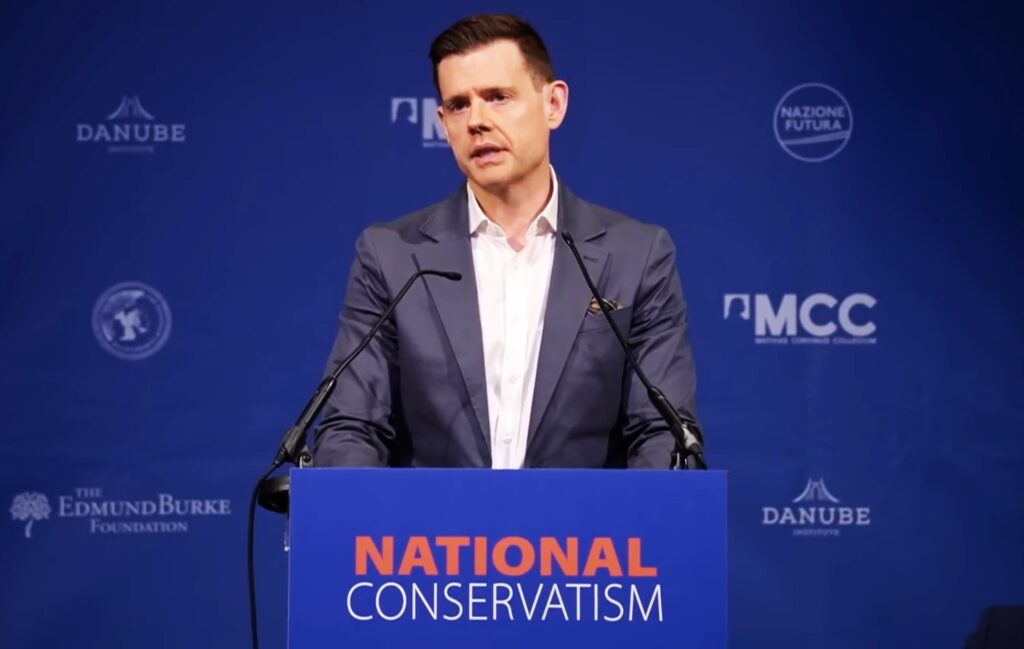A group of more than 85 climate experts today released a scathing review of the Trump administration’s “Climate Working Group” report on climate change science, condemning it as “biased, full of errors, and not fit to inform policymaking.”
The reviewers include MacArthur “Genius” Fellows, a half-dozen members of the National Academy of Sciences, Royal Society fellows, and fellows from other prominent scientific organizations including the American Meteorological Society, which issued its own separate statement criticizing the Climate Working Group report.
They found that the federal report “exhibits pervasive problems with misrepresentation and selective citation of the scientific literature, cherry-picking of data, and faulty or absent statistics” in order “to downplay the risks of record-breaking heat, intense rainfall, worsening wildfires, rising sea levels, and widespread health harms – all well-established by decades of peer-reviewed science.”
The Trump administration’s report was authored by five longtime climate deniers — Steve Koonin, John Christy, Ross McKitrick, Judith Curry, and Roy Spencer —as part of its effort to gut federal powers to regulate climate-heating pollution from cars, power plants, and other major sources. The Department of Energy (DOE) released it on July 29.
On the same day the Trump report was released, Environmental Protection Agency Administrator Lee Zeldin announced the agency’s proposal to rescind the foundation of those regulations: its scientific “endangerment finding” affirming that carbon pollution threatens human health and welfare by creating dangerous planetary warming.
Texas A&M climate scientist Andrew Dessler organized the volunteer effort to review the report, which is being submitted to the Department of Energy during the public comment period that closes on September 2. The public comment period on the EPA’s proposal is open through September 22.
Announcing the release of the review this morning on his personal blog, Dessler termed the Trump report “a show trial for climate science.
“Like any good Soviet trial, the outcome of this exercise by the Dept. of Energy is already known: climate science will be judged too uncertain to justify the endangerment finding,” Dessler said. “Once you understand that, everything about the DOE report makes total sense. You understand why the five contrarian authors were selected: The only way to get this report was to pick these authors. If any other writing team had been chosen, the report would have been 180° different.”
The Trump report’s authors have previously defended their work, telling the journal Nature that they are “committed to a transparent and fact-based dialogue on climate science and know from long experience that scientific criticism and rebuttal are essential to that process.”
In response to a request for comment, Curry referred reporters to her blog, where she described the Dessler review as “comprehensive” and a “laudable effort,” noting that it “was prepared in 30 days (sort of weakens the argument that the DOE report was written too quickly, ha ha).”
The Energy Department’s public comment period on the report was set for 30 days, rather than a more typical 60 days. The agency has not announced an extension.
After “skimming” the review, Curry said, she “didn’t spot anything in this report that would lead to changing any of the conclusions in the DOE Report.”
The four other members of the Climate Working Group, as well as the Energy Department, did not immediately respond to a request for comment.
“A Wonderful Example of Junk Science”
The Trump report “is a travesty for U.S. scientific integrity,” said Ryan Katz-Rosene of the University of Ottawa, an expert on climate and sustainability policies and politics, in a statement. “It reads like a list of common climate skeptic tropes — long ago rebutted by the scientific community — being rehashed by a group of disgruntled scientists.”
The 435-page expert review found that the Trump climate report exhibited a pattern of questionable reasoning, as well as dozens of factual and structural flaws — such as relying on “verifiably flawed and unrepresentative [scientific] literature.”
It was also riddled with typos, scrambled citations, unsupported claims about climate science, and references to research or data that the reviewers could not find, along with at least one manufactured quote.
These sorts of errors have become associated with AI slop, though the reviewers didn’t speculate whether the report’s five authors — who the expert reviewers described in a statement as a “tiny team of hand-picked contrarians” — used AI to write their report.
“I always like to find a silver lining,” climate scientist Andy Miller, a 33-year EPA veteran, said in a statement. “In this case the silver lining is that this document is a wonderful example of junk science that can be used as an example for years to come.”
Koonin, Curry, and their co-authors used several climate disinformation tactics in their report. Here are just a few.
Omitting Evidence
The review found many instances where the Trump report left out vital details — sometimes entire fields of study — that would undercut the administration’s case for deregulation.
“The only mention of the oceans throughout the entire report is in the context of ocean acidification, coral reefs, and sea level rise,” the review noted. “The glaring omission of the myriad impacts of climate change on the ocean — marine heat waves, changing species distributions, changes in ocean circulation, increased harmful algal blooms, coastal erosion, and economic impacts on commercially valuable fisheries to name a few — is a significant problem with the report.”
The report also has a bad case of “selection bias,” by elevating minor issues or weak science over well-established and strong science, or issues vital to climate action.
In one instance, the Trump team heavily downplayed the scientific research at the heart of the Paris Agreement’s nitty-gritty methodologies for measuring carbon emissions, and put a more marginal approach at the center instead.
“For a report claiming to be a ‘Critical Review’ of greenhouse gas impacts to entirely ignore the primary scientific framework for international and national climate policy is an inexplicable and scientifically unjustifiable omission,” the review concluded.
In sections where Trump’s climate team claimed that there were no long-term extreme weather trends associated with climate change — such as more frequent and destructive floods and hurricanes — the review found that they left out key findings that contradicted their conclusion, cherry-picked studies, quoted research out of context, and used outdated materials instead of the best available science.
The five authors used similar tactics to slant sections on tornadoes and wildfires.
Zombie Arguments
The Trump administration report raises questions about climate change that have been asked and answered — repeatedly. Rehashing these long-settled scientific debates created an opportunity for the report’s authors to deny the fundamental cause of the climate crisis: burning fossil fuels.
“Those sorts of back-from-the-dead arguments [create] a ‘zombie argument’ that is inconsistent with the state of the best available science,” the expert review concluded.
One such resurrected claim pointed to record-breaking high temperatures in the 1930s to dismiss climate change as a factor in recent heat waves. However, many of these records have fallen since 2000. “[I]n our calculation, the most recent few years have had as many record-breaking high temperatures as the 1930s,” the review notes. “In fact, the year with the most record-breaking hot days is 2023.”
The federal report sometimes griped about the absence of their claims from recent Intergovernmental Panel on Climate Change surveys of the best-available science, without acknowledging that climate scientists have moved on from those questions for good reasons.
“So much literature has been produced to refute the claims of the [Climate Working Group] report authors, and over so long a time period,” the review pointed out, “that these claims are no longer part of the active scientific debate.”
Echo Chambers
The Trump administration’s five authors relied heavily on citations to their own climate-related research and analyses, the review found.
Overall, 11 percent of the report’s citations were self-citations, according to the review — roughly two to four times more than the self-citations in the climate science overview released by the Intergovernmental Panel on Climate Change in 2021.
In a couple of chapters, the self-citations numbered more than one out of every four.
This echo chamber of self-citations pushes out other, peer-reviewed and published science on the same topics, “of which there is plenty,” according to the expert review.
Word Games
The expert review found that conclusions reached by the Trump team sometimes relied on incorrect uses of scientific terms in ways that favored climate denial.
In one example, reviewers explained that the term ocean acidification “is not used in a way to indicate that the ocean is becoming an acid,” but “the more commonly used term for the phenomena of ocean carbonate chemistry changes because it provides a straightforward terminology to describing the declining pH of the ocean.”
Elsewhere, the Trump team uses the term “greening” in a misleading way that “implies ‘greening’ is an expansion of vegetation into areas that were previously non-vegetated,“ the review found. This is a key mistake because the report “thus incorrectly interprets the literature on ‘greening’ throughout this section.”
The Endangerment Finding, Endangered
Opponents of greenhouse gas cuts have worked for decades to block or overturn the federal government’s power to regulate them.
The legal basis for this authority is the EPA endangerment finding that — despite being credited to the Obama-Biden administration by Trump officials — dates back to George W. Bush’s second term as president.
In 2007, the U.S. Supreme Court ruled, in lawsuit brought by Massachusetts and several other states, that CO2, methane, and four other greenhouse gases are pollutants under the Clean Air Act. In the ruling the court also found that under the Clean Air Act, the EPA had a duty to analyze whether these gases endanger public health or welfare and — if so — to regulate sources of carbon pollution.
In response to this decision, the EPA produced its endangerment finding. Rather than regulate carbon pollution, however, the Bush White House suppressed the document.
In 2009 the Obama White House released the finding, and began establishing rules under the Clean Air Act to cap and cut carbon pollution from motor vehicles as well as power plants and other industrial sources.
Since then, as DeSmog has previously reported, a powerful anti-climate coalition of politicians, oil companies, trade groups, and right-wing networks has been trying to overturn the endangerment finding, culminating in Project 2025 — the extreme-right blueprint for transforming the federal government.
Project 2025’s chapter on the EPA, which mentions “updating” the 2009 endangerment finding, was written in part by Aaron Szabo, now a high-level Trump appointee to the agency.
The director of the White House Office of Management and Budget, Russ Vought, was one of the main architects of Project 2025, and has publicly supported rescinding the endangerment finding.
Some members of the Trump climate working group were also part of his first administration. Steve Koonin, a physicist, advised the government on climate change during Trump’s first term, and atmospheric scientist John Christy was on the EPA’s Science Advisory Board.
Another Trump report co-author, climatologist Judith Curry, was a paid witness for the state of Montana during a 2023 trial on whether the state’s promotion of fossil fuels violated its constitution. The 16 young Montana residents who sued the state won that case.
UPDATE Sept. 2, 2025: This story has been updated to include a statement from Judith Curry, and to correct the end date of the public comment period for the EPA’s proposal to rescind the endangerment finding.
Subscribe to our newsletter
Stay up to date with DeSmog news and alerts







